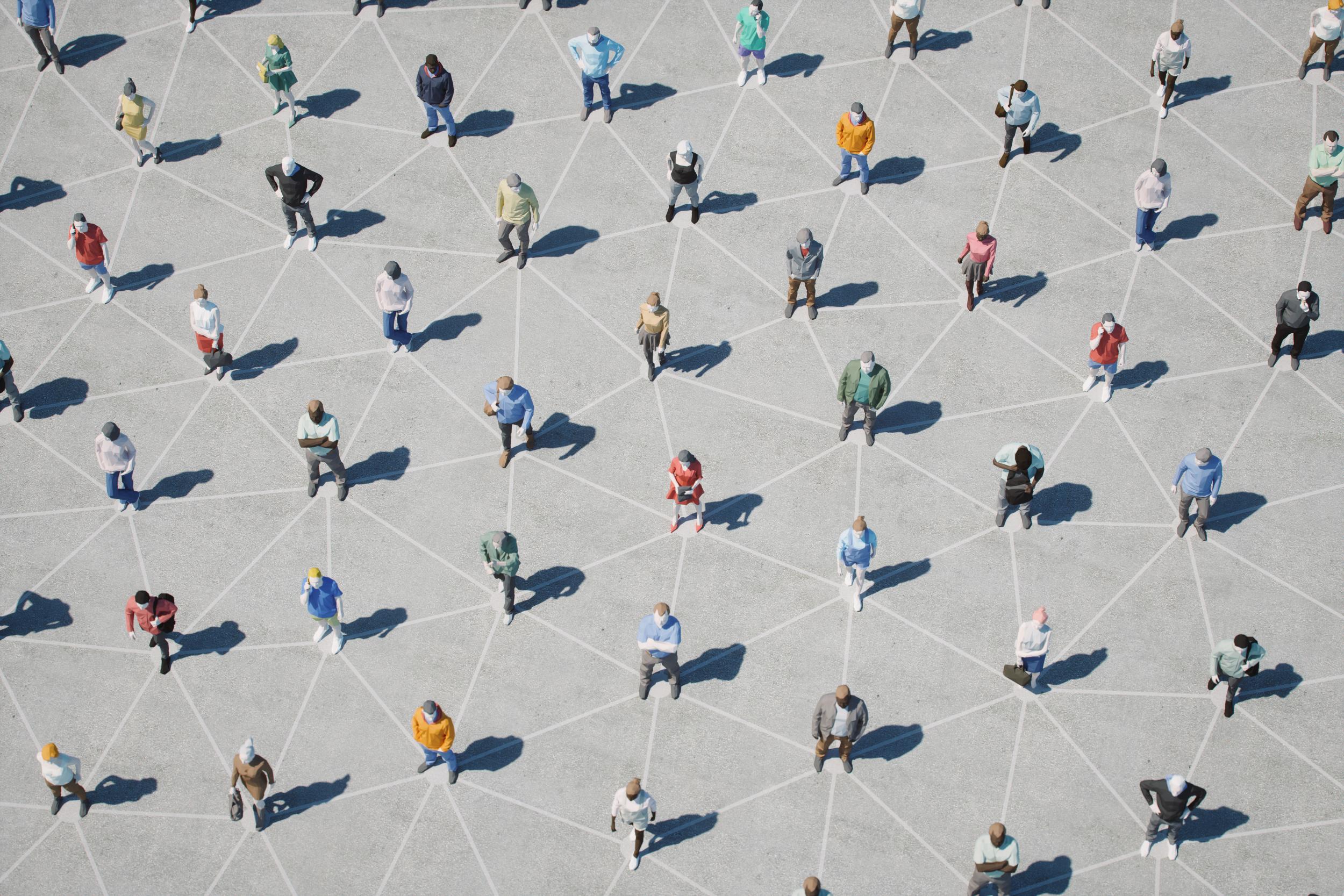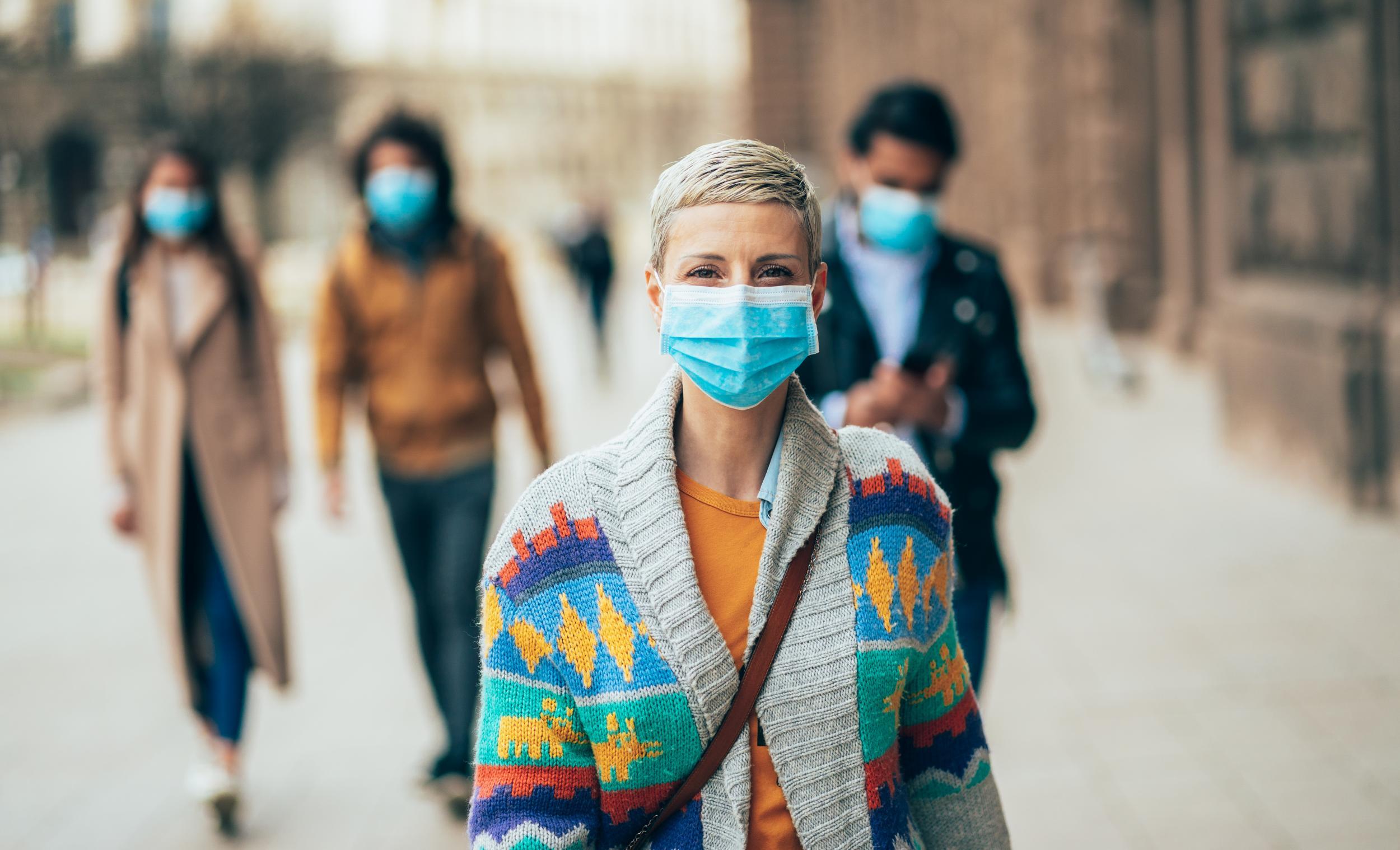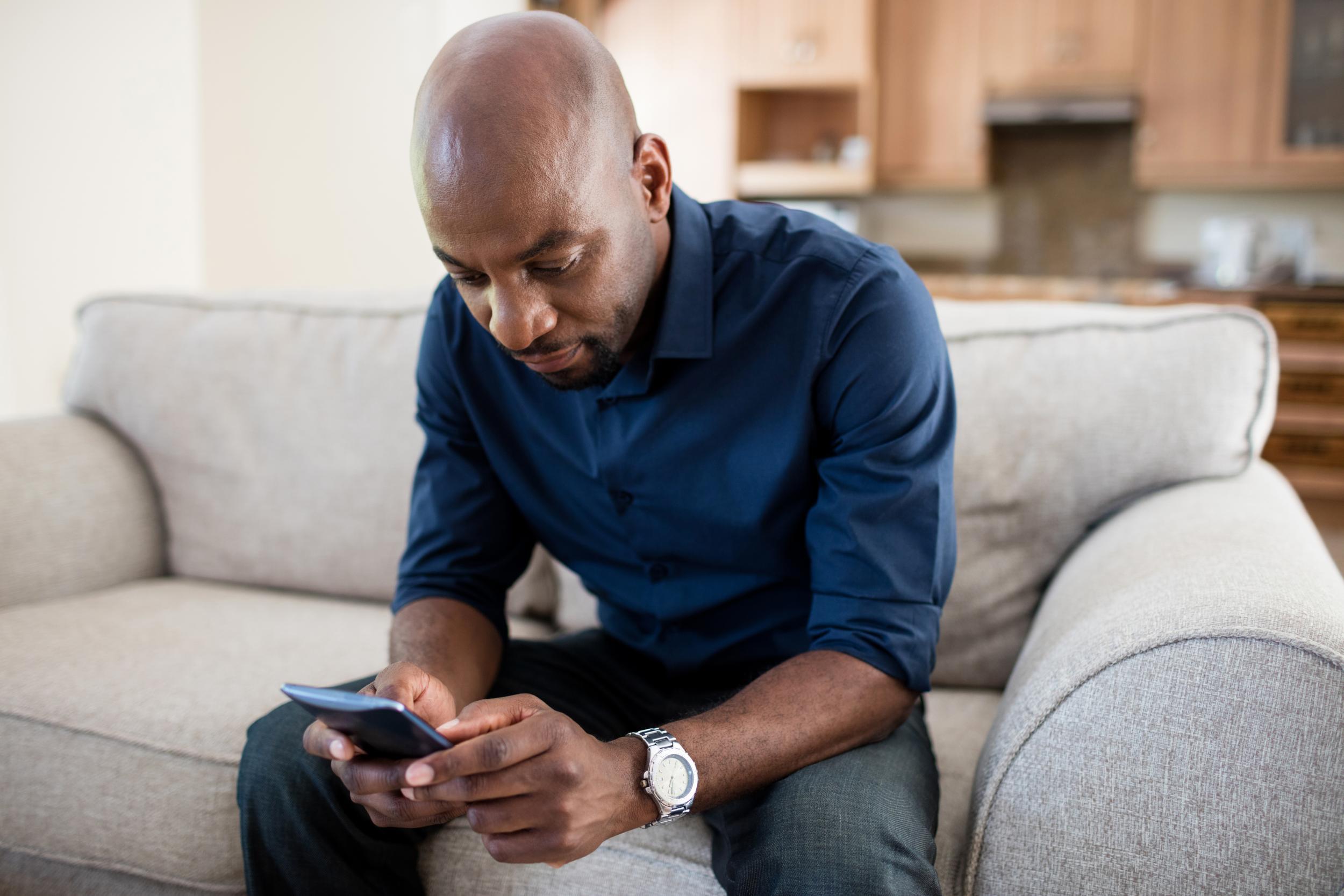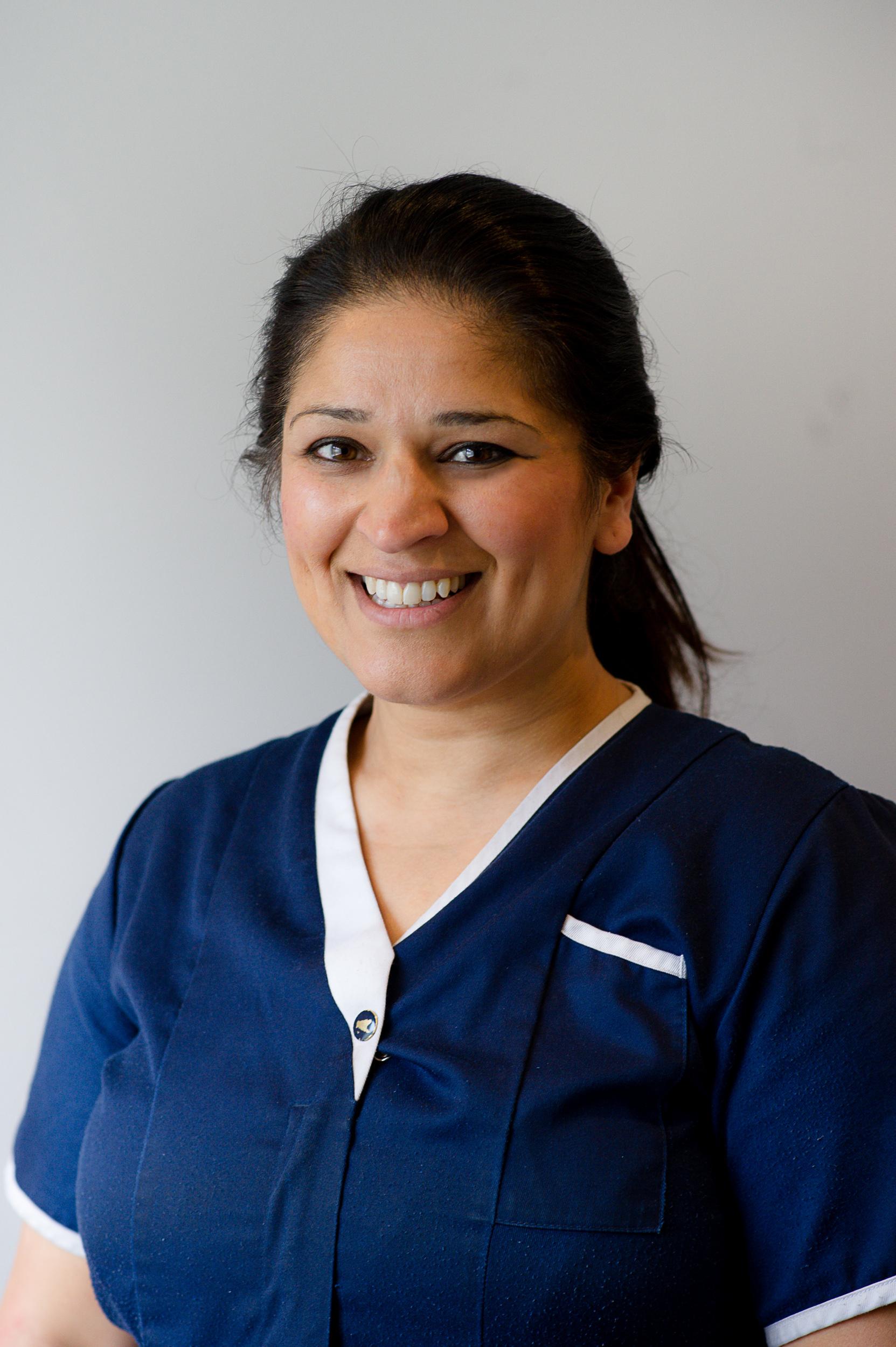NHS Test and Trace: your questions answered
The service is able to track the spread of coronavirus, isolate new infections and play a vital role in giving an early warning if the virus is increasing again, locally or nationally across England

The NHS Test and Trace service was launched across England on 28 May to rapidly identify any cases of coronavirus – and reduce its spread by helping to control the 'R' rate of reproduction.
Between 11 June and 17 June, 6,923 people who tested positive for Covid-19 had their case transferred to the contact tracing system. Of these 4,869 people (70.3%) were reached and asked to provide details of recent close contacts.
A step-by-step guide to NHS Test and Trace
Anyone who tests positive for coronavirus will be contacted by NHS Test and Trace.
People identified as having been in close contact with someone who has a positive test must stay at home for 14 days, even if they do not have symptoms.
If those in isolation develop symptoms they can book a test.
If they test positive, they must continue to stay at home for seven days or until their symptoms have passed.
If they test negative, they must complete the 14-day isolation period.
Members of their household will not have to stay at home unless the person becomes symptomatic. Then they must also self-isolate for 14 days.
The service provides testing for anyone with symptoms (you can book a test either online or by calling 119), and anybody who now tests positive will be contacted by an NHS contact tracer and asked to share information about any close contacts they have had recently.
It then alerts anyone who has been in close contact with the infectious person that they should immediately self-isolate at home for 14 days from the date of their last contact.
As those exposed to coronavirus help to minimise transmission, the Government should be able to relax lockdown measures further, allowing the country to safely return to normal.
Here’s a round up of what you need to know about NHS Test and Trace...
What questions will an NHS contact tracer ask me if I’ve tested positive for coronavirus?
The tracer asks where you have been (work or leisure), who you have had recent close contact with, and details of how to get in touch with those people, such as emails and phone numbers. You might receive a text or email alert with instructions, and you should respond as soon as possible.
Who is a “contact”?
A “contact” is someone you have been close to from two days before you were symptomatic up to seven days from the onset of your symptoms.
This includes your household members; people with whom you have been in face-to-face contact within one metre; any contact within one metre for one minute or longer; contact within two metres for more than 15 minutes; anyone you have had physical contact with; anyone who travelled with you in a small vehicle or near you on a plane.
People in professional health and social care roles who have correctly used PPE are not considered a close contact.

After receiving a positive test result, do I need to contact anyone?
NHS Test and Trace aims to contact people by email, text or landline within 24 hours of tracers receiving the result. If you are waiting, remember to self-isolate for seven days, and for your household to isolate for 14 days. Do alert anybody you have had close contact with since the 48 hours before the onset of your symptoms – and if any of those people are colleagues, you can ask your employer to alert them. At this stage, they do not need to self-isolate, but must avoid vulnerable individuals.
Will my contacts be told that I might have infected them?
No, your contacts will not be given your name or details. They will only be told that they have been in close contact with someone who has tested positive and that they need to act.
What happens if I am contacted by a tracer and told I’m at risk?
You must immediately self-isolate at home for 14 days from the date of your last contact with someone who has tested positive for coronavirus. Follow this even if you feel well, as symptoms can take up to 14 days to appear and you can be infectious to others even if you are asymptomatic.

How should people isolate if they live with a vulnerable person?
If you are self-isolating because you have symptoms of coronavirus or have tested positive for coronavirus, you should, where possible, arrange for anyone who is clinically vulnerable and clinically extremely vulnerable to move out of your home, to stay with friends or family for the duration of your home isolation period.
If you cannot arrange for vulnerable people to stay with friends of family, stay away from them as much as possible, following the guidance. For the clinically extremely vulnerable, please follow the shielding guidance.
If I have not obeyed social distancing or self-isolation, will I, or my contacts, get into trouble?
No, don’t worry. The information you share is confidential and will only be used by the service to contain the virus. It’s important that you share accurate records to maximise the ability to contain the virus.
How does contact tracing work with people who have no phone or access to a computer?
Public health specialists are working alongside local authorities to deal with complex cases, such as rough sleepers or other vulnerable groups who are difficult to contact. An email address and phone number are currently required to book a test. However, anyone who does not have an email address can have their results sent to a trusted family member or friend.
What happens if I work in, or have recently visited, a hospital, care home, prison or school for children with special needs?
If you have attended any setting where there is a risk of a local outbreak, the contact-tracing process will be escalated to local public health experts, who will liaise with managers.

How will you ensure that all contacts are traced, such as people I don’t know personally, but have come into contact with on public transport?
The service traces people who have travelled with you in a small vehicle or sat next to you on a plane. People should always wear a mask and maintain social distancing on public transport.
Can I leave isolation if I get a negative test result?
Even if you receive a negative result after developing symptoms, you must complete the isolation period, however your household doesn’t need to isolate.
If I have previously had Covid-19 or an antibody test, do I still need to isolate?
Yes, if you are advised to do so. This is because the WHO says there is insufficient evidence to confirm that those who have had the virus are immune to getting it again and/or passing it on to others.
"Our job is then to speak to the person about their symptoms": meet an NHS Test and Trace clinical contact caseworker

Kamaljit Kaur Khatker, 40, pictured left, is an experienced osteopath who lives in Iver, Buckinghamshire. She runs her own clinic to provide healthcare to keep people moving and living without the constraints of acute pain.
In May 2020, she also enrolled as a clinical contact caseworker for the NHS Test and Trace service. It’s a role which involves interviewing people who have tested positive for Covid-19, to understand where they have been and who have come into contact with.
Khatker volunteered for the role as she was really moved by how much people were doing, in all kinds of fields, but particularly the NHS.
“As things have progressed, and you start to look at what’s happening with the world, we have to find a way of co-existing with it. I wanted to be part of that solution. I do feel really proud to be part of this,” she says.
So what does a clinical contact caseworker do? “Our initial role is to contact people who have tested positive for Covid,” explains Khatker. “All of us in tier two, which is the clinical team, would contact somebody who has had a positive result. Our job is then to speak to the person about their symptoms and where they’re at.”
The symptoms
The most important symptoms of coronavirus (Covid-19) are recent onset of any of the following:
A new continuous cough
A high temperature
A loss of, or change in, your normal sense of taste or smell (anosmia)
For most people, coronavirus will be a mild illness. However, if you have any of the symptoms above you must stay at home and arrange to have a test
Khatker feels that the NHS Test and Trace service plays a vital role in the fight against any further spread of the coronavirus.
“I think that this system means you can accurately get to people quite quickly. Even I’ve been surprised by how quickly we’ve been able to contact people,” she says. “If we get them and their contacts to self-isolate, it means that while a small proportion of the population stay at home, the vast majority can go out and keep the world functioning.”
And does Khatker have any particular advice for people using the service? “I think first of all, not to be worried," she says. "If they need any reassurance from us that we are who we say we are, we’re more than happy to give it.
"I think that people might sometimes feel that if they’re giving their contact details, they’re somehow telling on people. But to look at it that if you were exposed to somebody that had Covid, you’d want to know – to look at not only how it affects you, but also how it could potentially benefit people secondarily as well.
“We do need to essentially look after each other. It’s much more about making sure that everybody gets the support they need if they have been exposed. The benefit is so huge.
If you are experiencing the symptoms of coronavirus, go to nhs.uk/ask-for-a-coronavirus-test or call 119
